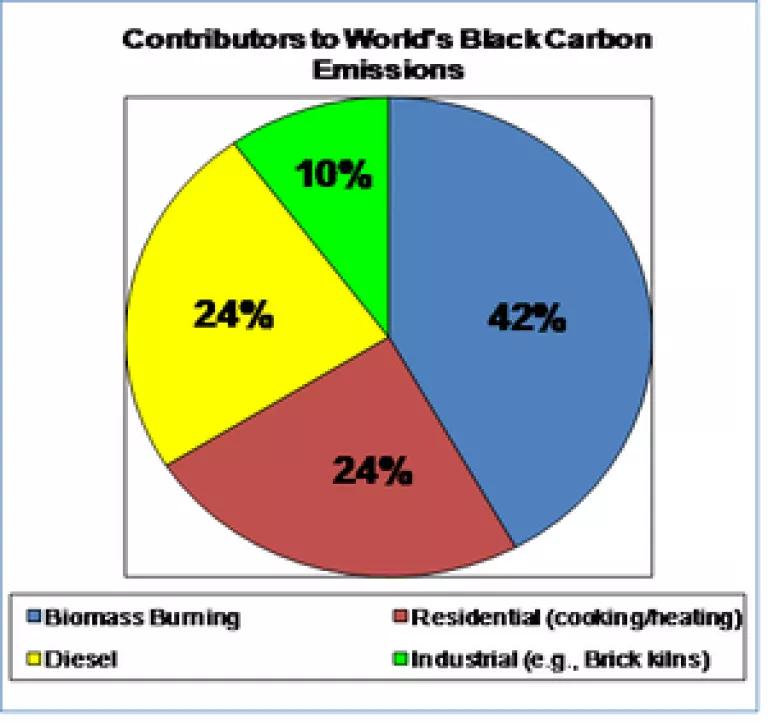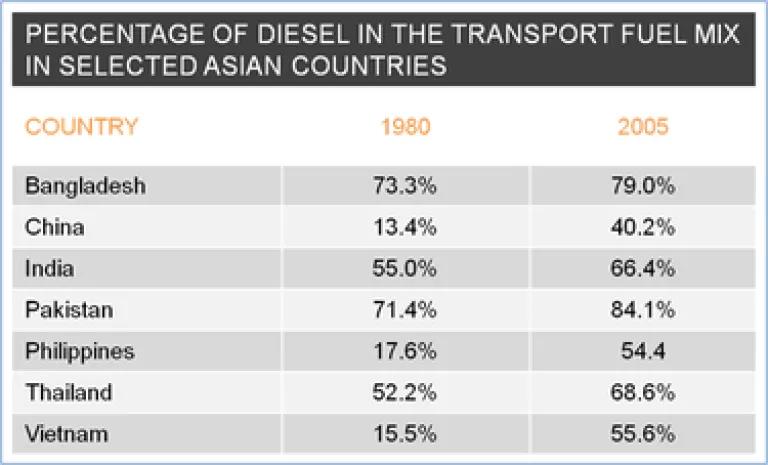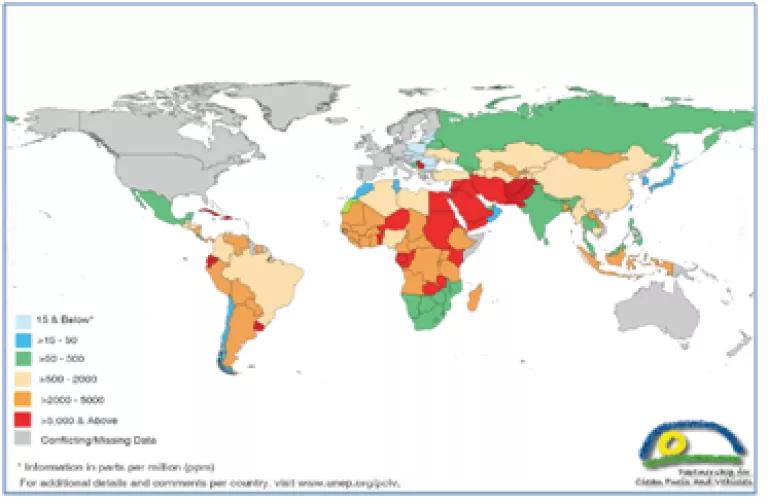Black Carbon More Powerful Contributor to Climate Change than Previously Thought: New Study
Black carbon – that nasty air pollution that causes major health problems – also happens to be a very powerful contributor to climate change. In fact, a new multi-year international study has just found that it’s the second most powerful contributor to climate change – behind carbon dioxide emissions. Emissions from dirty diesel, residential cooking and heating, and forest fires from deforestation are major contributors to black carbon pollution (see figure). Addressing black carbon emissions from these and other sources are literally a win-win action – saving people’s lives and minimizing climate change.
The new study, conducted by a multinational team of 31 experts found that the contribution of black carbon to climate change is twice the level of earlier estimates. Combined with strong action to address carbon pollution, action to address black carbon pollution – and other “short-lived climate pollutants”—is a key strategy in addressing climate change.
There are other compelling reasons to address this pollution, as people are literally dying today as a result of the pollution that is contributing to black carbon. According to a new World Health Organization study—“2010 Global Burden of Disease”—outdoor air pollution is contributing annually to over 3.2 million premature deaths worldwide.
Around one-quarter of the world’s black carbon pollution comes from dirty diesel engines so there is a huge need to tackle this pollution. Dirty diesel engines are a major source of fine soot particles, which can lodge deep within the lungs, increasing health risks including: emergency room visits, hospital admissions, asthma attacks, cardiopulmonary disease (including heart attack and stroke), respiratory disease, adverse birth outcomes, and premature death (from pneumonia, heart attack, stroke and lung cancer).
For the past two decades, NRDC's Dump Dirty Diesels Campaign has been working in the U.S. and internationally to solve the problem of dirty diesel exhaust. What we’ve seen time and time again is that this is a solvable problem - combining ultra-low sulfur fuel and particulate soot filters eliminates more than 90-95% of the diesel soot and black carbon. It is an approach that has worked in a number of countries around the world.


There is a huge shift towards diesel vehicles in many countries around the world so the time for action can’t wait (see table). For example, in China around 40 percent of the transportation fuel mix comes from diesel, over 66 percent in India, and almost 80 percent in Bangladesh.
Unfortunately the kinds of common-sense strategies – standards for low sulfur fuel combined with vehicle standards – haven’t flowed quickly in several key countries. As the Partnership for Clean Vehicles has documented (see this great interactive map), low sulfur diesel and cleaner diesel vehicles are still not required in a lot of places (see figure).

And the benefits of acting now will pay huge immediate dividends. As my colleague pointed out:
“This black carbon only lasts in the atmosphere for weeks. So, just as their impacts are felt almost immediately (in climate terms), so are the benefits of cutting those emissions. Turn off the spigot of black carbon, and both health and climate benefits are felt just as quickly.”
Given the huge health and climate change benefits of acting on dirty diesel and other forms of black carbon, this is a huge win-win strategy that needs to be quickly addressed.




